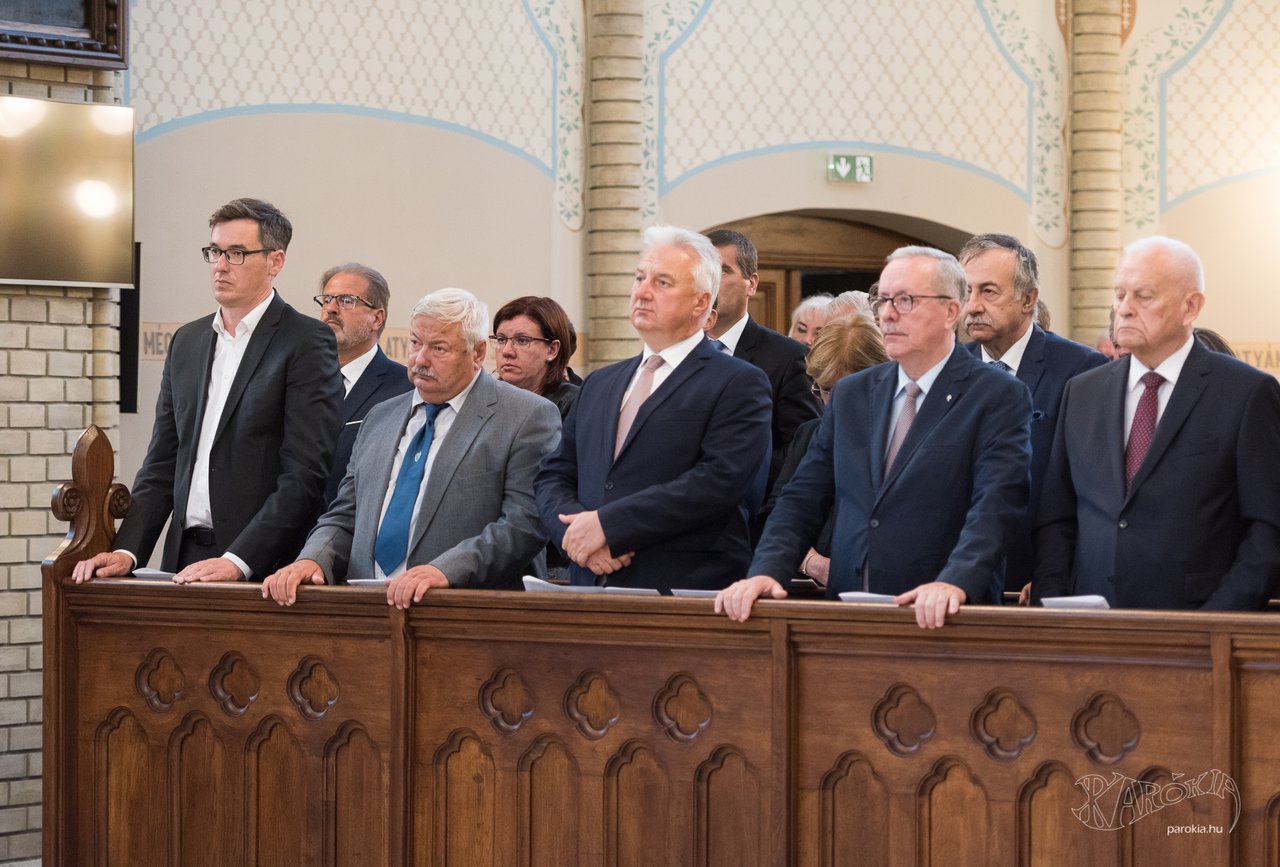"Keep the faith, and your faith will keep you", said Bishop Zoltán Balog, President of the Synod of RCH in his sermon at the ecumenical worship service on the eve of the State Foundation Day on August 20.
The Ecumenical Council of Churches in Hungary organised an ecumenical service on the eve of the State Foundation Day in the reformed Church of Szilágyi Dezső Square in Budapest (Buda congregation). At the service, Bishop Zoltán Balog, ministerial president of the Synod, preached the Word of God based on Psalm 33:12: “Blessed is the nation whose God is the Lord, the people he chose for his inheritance.” In his sermon, the Bishop drew a parallel between the life of Bartimaeus in the Bible (Mark 10:46) and that of King Stephen - Hungary’s first king, Founder of the State, who was also canonized, and created a strong Christian kingdom. He said that both the blind beggar and the founding king were kept – healed and made well - by God. The same is true for every single person: "Keep the faith and your faith will keep you and heal you, and you will receive your sight. Even a whole nation will only be happy and become an inheritance if the Lord keeps it."
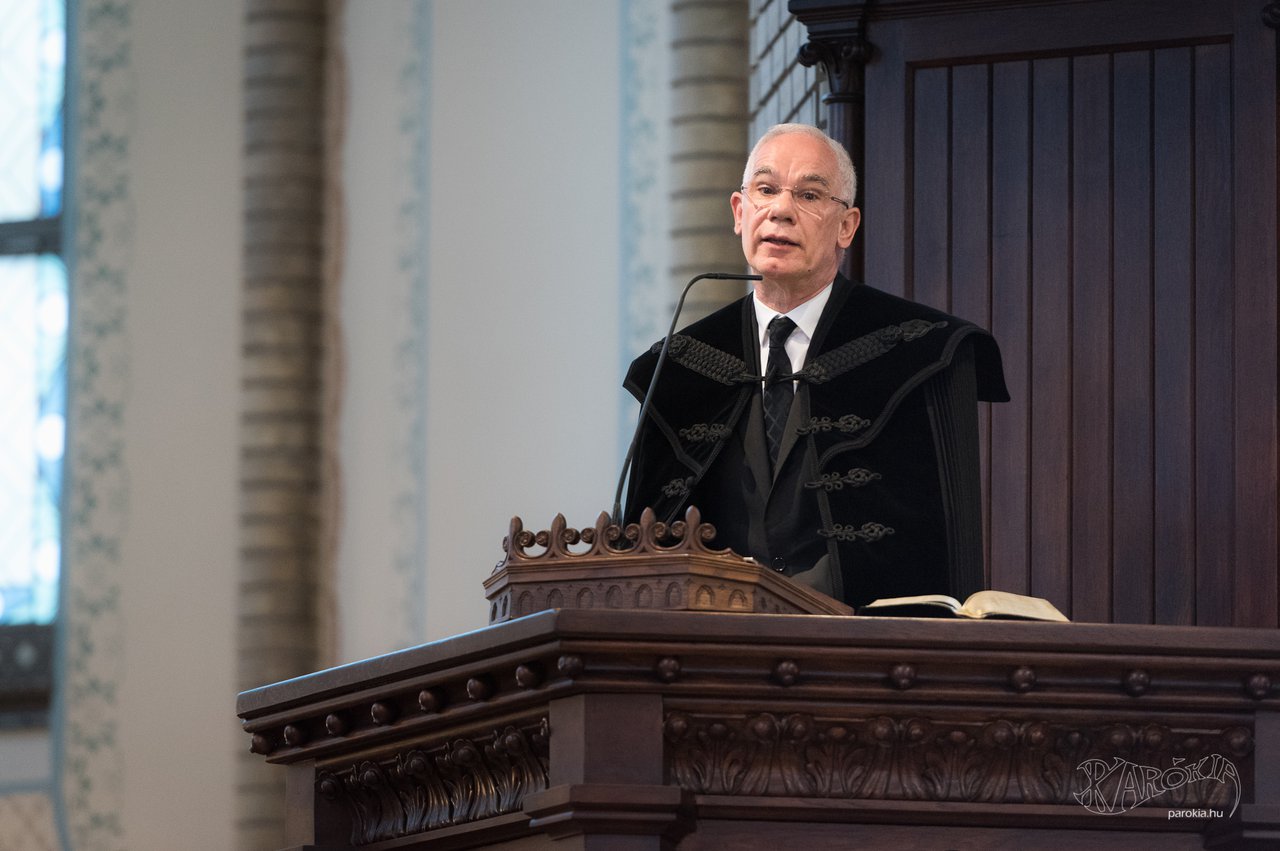
Upholding the faith proved to be a source of force for the community 2000, 1000 and 500 years ago, the church leader added. "Our constitution states that Christianity is a nation-preserving force, but not only that, it is also a nation-building, nation-creating force. And a nation is happy when personal wellbeing and the welfare of community mutually strengthen and support each other. If the nation is strengthened in such a way that its citizens can also raise, then it is a cheerful country. But if individual prosperity grows at the expense of the community, the nation will be unfortunate." He added that "withdrawing from the world would be a sign of intellectual pride and egoism, and those who do so will contribute nothing to the nation's prosperity.”
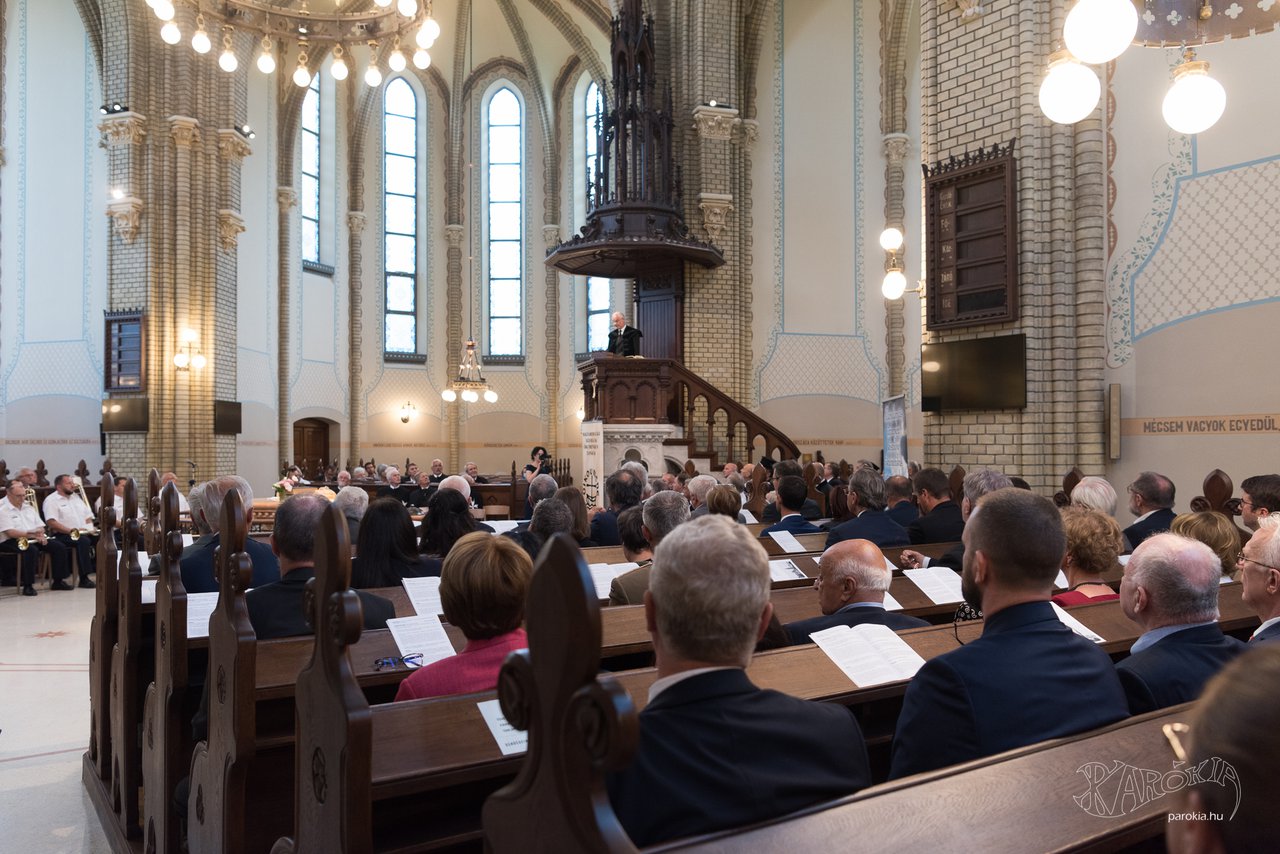
"Euphony of personal choice and public responsibility - this is our heritage." In St. Stephen's exhortations, these two are embodied in prayer, the Bishop explained. "Those who shout out to the Lord and begging Him to receive their sight are courageous, because they recognize by their request that they are blind. Without Christ we are all blind. But we can also appeal to God’s grace together. By His grace are all things, it is by grace that our faith keeps us, and also that we can uphold our faith."
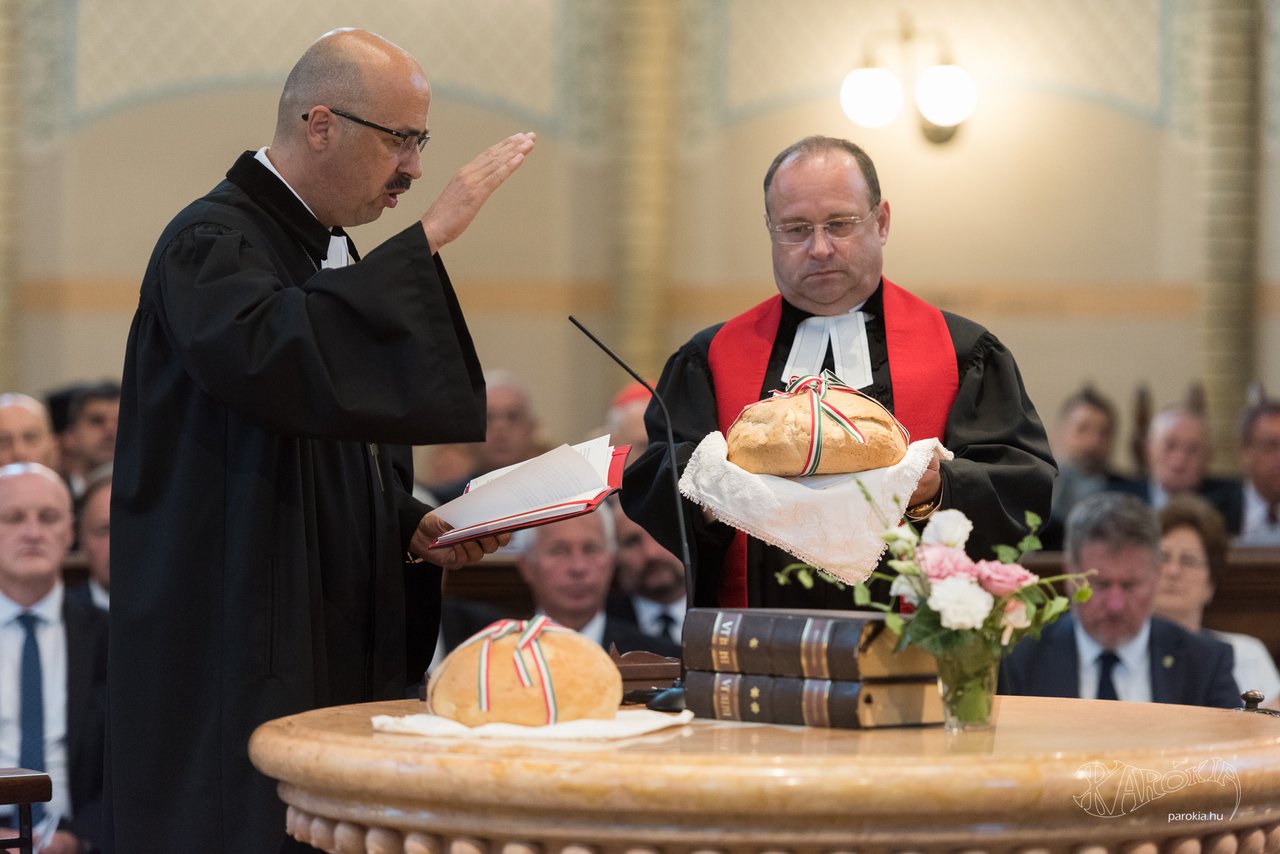
After the sermon, Lutheran Bishop Péter Kondor, Vice President of Ecumenical Council of Churches, blessed the new bread, which was tied with a national ribbon. "When we ask for a blessing on bread, we think of all that we need for the peace of our lives and the serenity of our souls," said the church leader. Bread reminds us of the broken body of Christ, and thus of sacrifice, responsibility, devotion and service, he added.
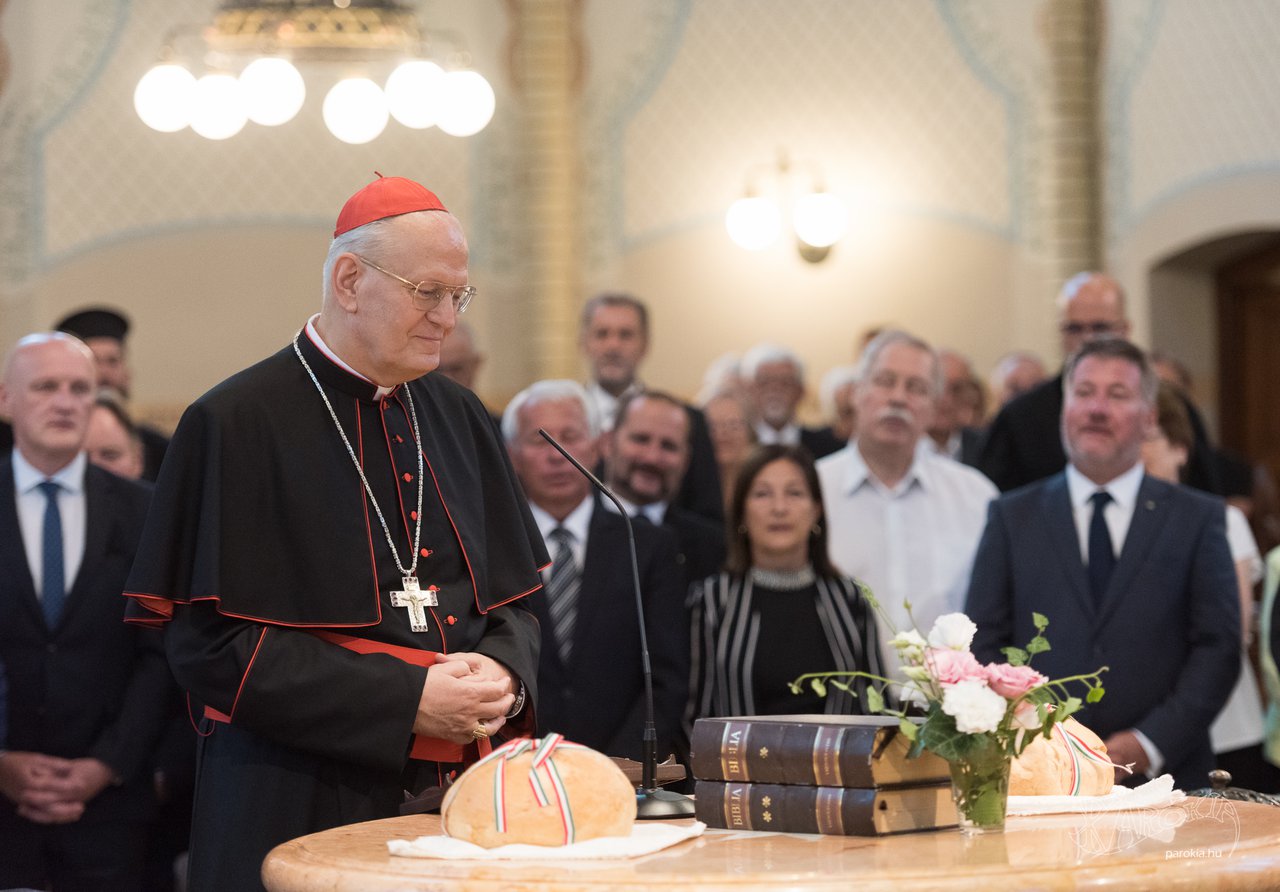
Cardinal Péter Erdő, Primate and Archbishop of Esztergom and Budapest concluded the ecumenical service with a prayer. Dávid Illés, dean of the reformed Presbytery and senior pastor of the hosting congregation; reformed Bishop József Steinbach, President and Vilmos Fischl, secretary general of the Ecumenical Council of Churches in Hungary; Albert Pataky, President of the Pentecostal Church and vice-president of the Ecumenical Council; János Papp, Baptist church president; Khaled A. László, Methodist superintendent, Chairman of the Supervisory Board of Ecumenical Council; Róbert Szentirmai, Orthodox priest; Frank Hegedűs, Anglican dean; and Tamás Róna, Chief Rabbi of Federation of Hungarian Jewish Communities; and the leaders of the member churches of the Ecumenical Council were also present at the festive service. The Air Force Band, conducted by Lieutenant Colonel János Katona, performed at the worship which was concluded by singing of the National Anthem.
